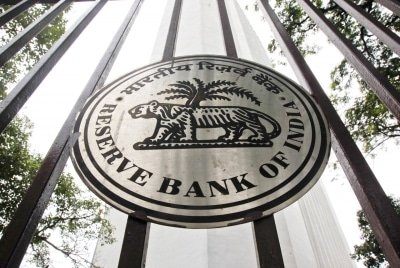Mumbai, Aug 25 (IANS) The Reserve Bank of India has called for setting up an independent regulator for targeted public investment to revive and crowd in private investment.
In its Annual Report 2019-20, it said that targeted public investment funded by monetisation of assets in steel, coal, power, land, railways and privatisation of major ports by Central and state governments under an independent regulator can be the way forward to revive and crowd in private investment.
“In fact, goods and services tax (GST) Council type of apex authorities can be set up in respect of land, labour and power to drive structural reforms,” the report said.
“They could include speedier implementation of the national infrastructure pipeline, a north-south and east-west road corridor together with a high-speed rail project that build on the successes of the golden quadrilateral, alongside steps to improve business sentiment and the environment for investment.”
According to the RBI, states can be encouraged to publicise the availability of litigation-free land in their jurisdictions with access to modern infrastructure.
“In the power sector, the opportunity has arrived to leapfrog India into becoming the world leader in renewable energy by incentivising the domestic production of solar panels and connecting dispersed transmission links with remote areas. For the sector as a whole, elimination of cross-subsidisation through the tariff structure and provision of subsidy, if any, through direct benefit transfer (DBT) should be a priority, along with due consideration to the privatisation of electricity distribution companies (discoms),” the report said.
“With regard to railways, there is a strong case for manufacturing units to be corporatised. The growth potential of land banks can be exploited, particularly in metropolitan areas, by long-term leasing to the private sector, including for development of commercial real estate. FDI into railways can be encouraged by removing bottlenecks in the access to infrastructure – land; procurement rules; project risk-sharing mechanisms.”
As per the report, a comprehensive policy is needed with regard to building adequate reserves of strategic materials, including the initiatives undertaken for crude oil.
It cited the need for diversifying financing options.
“Alternatives to bank finance have to be assiduously cultivated – capital markets and FDI offer opportunities to bring in investors with a relatively longer-term view that is conducive to attracting durable capital as well as embedded technology. The setting up of the National Investment and Infrastructure Fund (NIIF) in 2015 is a major strategic policy response in this direction,” RBI said in the report.
“Promotion of the corporate bond market, securitisation to enhance market-based solutions to the problem of stressed assets, and appropriate pricing and collection of user charges should continue to receive priority in policy attention.”
Besides, the Reserve Bank pointed out the need for an expanded footprints for specialised NBFCs classified as Infrastructure Finance Companies.
Furthermore, it said that a big push to certain targeted mega infrastructure projects can reignite the economy.
“It is also time to turn to the unlocking of entrepreneurial energies and risk appetite by improving the business environment. Faster enforcement of contracts, including through expansion of judicial and insolvency capacities, would be a game changer,” the report said.
“Property registrations can be speeded up from the current 58 days, and a centralised website can provide real time information on all regulatory compliance requirements. In general, the compliance burden can be streamlined substantially.”
Additionally, it said the Covid-19 crisis can be converted into an opportunity by using online provision of education and training to implement reforms in the social infrastructure by skill development and reskilling so as to prepare a labour force equipped to keep pace with a big thrust on infrastructure.
–IANS
rv/sn/vd
